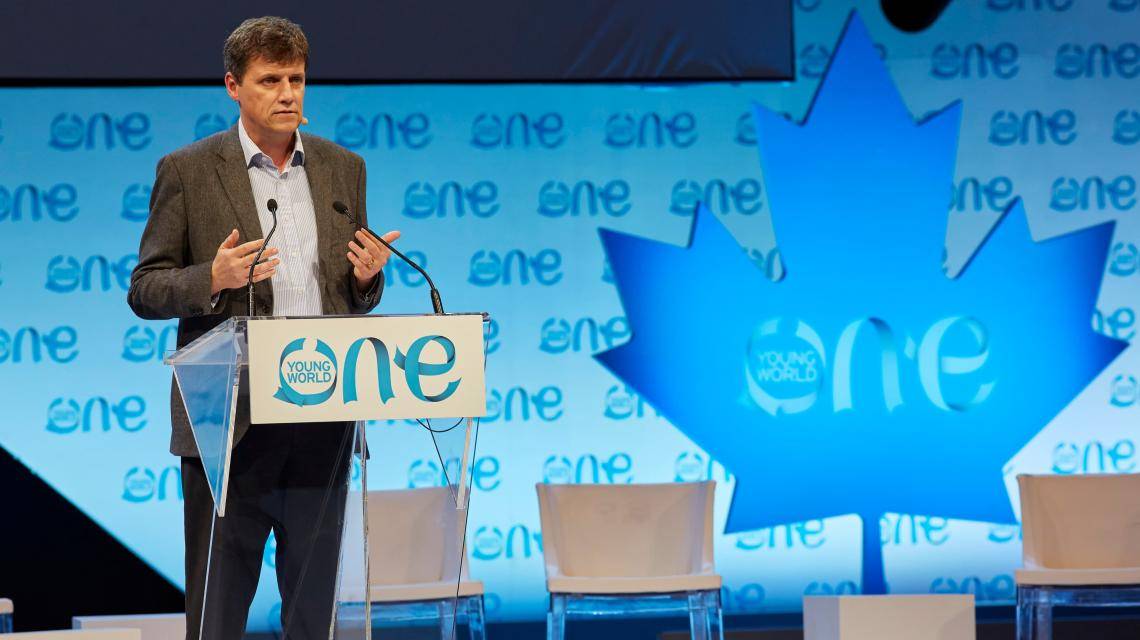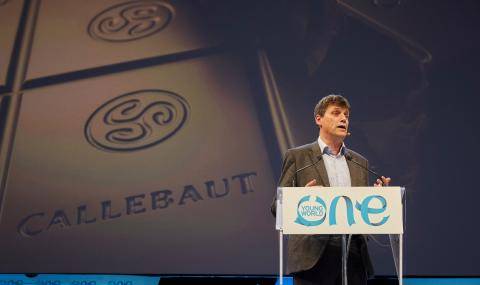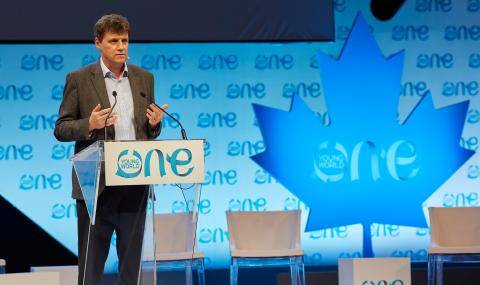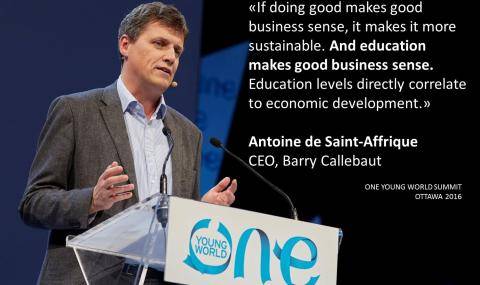Learn, Leverage, Give back
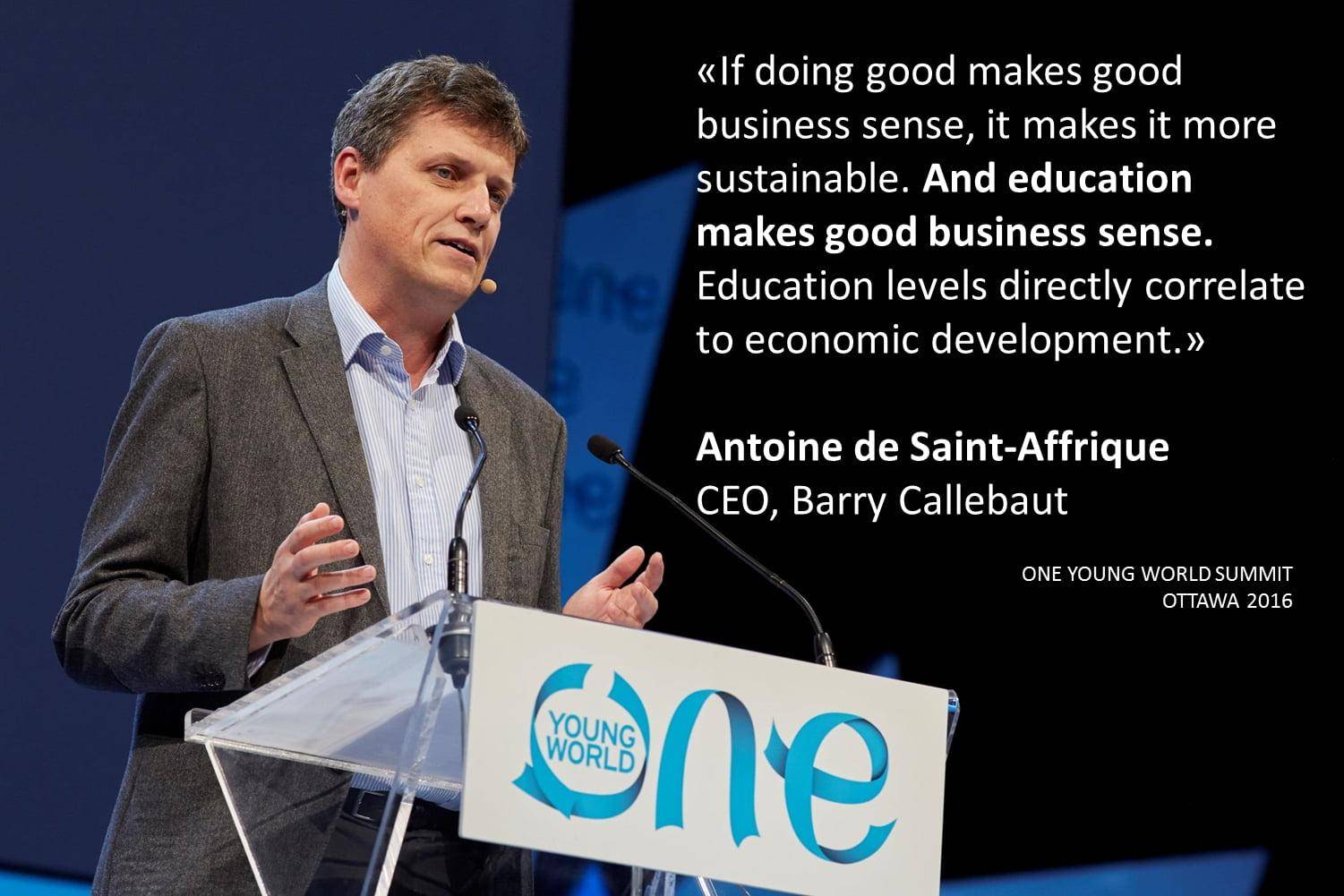
Learn, Leverage, Give back
Most people think we make chocolate at Barry Callebaut. And we actually do make chocolate. But very few people realize we do it for a purpose. Our main shareholder is a foundation - the Jacobs Foundation -, entirely focused on education and education science: half of our dividend goes back into education - 50 cent on every Euro we make.
It is time to realize that we must act now for the cause of education. Act differently. Act more decisively. Nice, Paris, Mumbai, Istanbul, Brussels, Gand Bassam, Nigeria, and so many other disasters would not take place anymore if every kid, and in particular, every girl, was given access to quality education. Access to knowledge, access to critical thinking, access also to the hope for a better life. And we have known that forever. Despite the fact, we know, change is slow to come: it is actually going in a seriously wrong direction.
We have a duty to act as we all belong to the most privileged 2% of the society, either by wealth or more importantly by education. Even more so that inequalities become unbearable: a world where the top 84 people own as much as the bottom 3,5 billion is not sustainable. A world where we live on the equivalent of 2 planets whilst we only have one is not senseful. And there is a direct link between poverty, absence of education and sustainability in all its forms. So no one should have any doubt on the duty to act.
We also have a clear economic interest to act. Education levels are directly correlated to economic development, each year of average per capita schooling is associated to long-term growth increase of 0.58 percentage points. And 1 point in average improvement in school test score correlates with 2% GDP growth.
Inclusive quality education correlates directly to women’s empowerment and gender equality. And education levels are more and more correlated with sustainable behaviour. Finally, education levels also tend to correlate with the stability of the civil society.
So if you have any interest in economic growth and political stability, you must have a fundamental interest in education and on equal access to education for girls and boys.
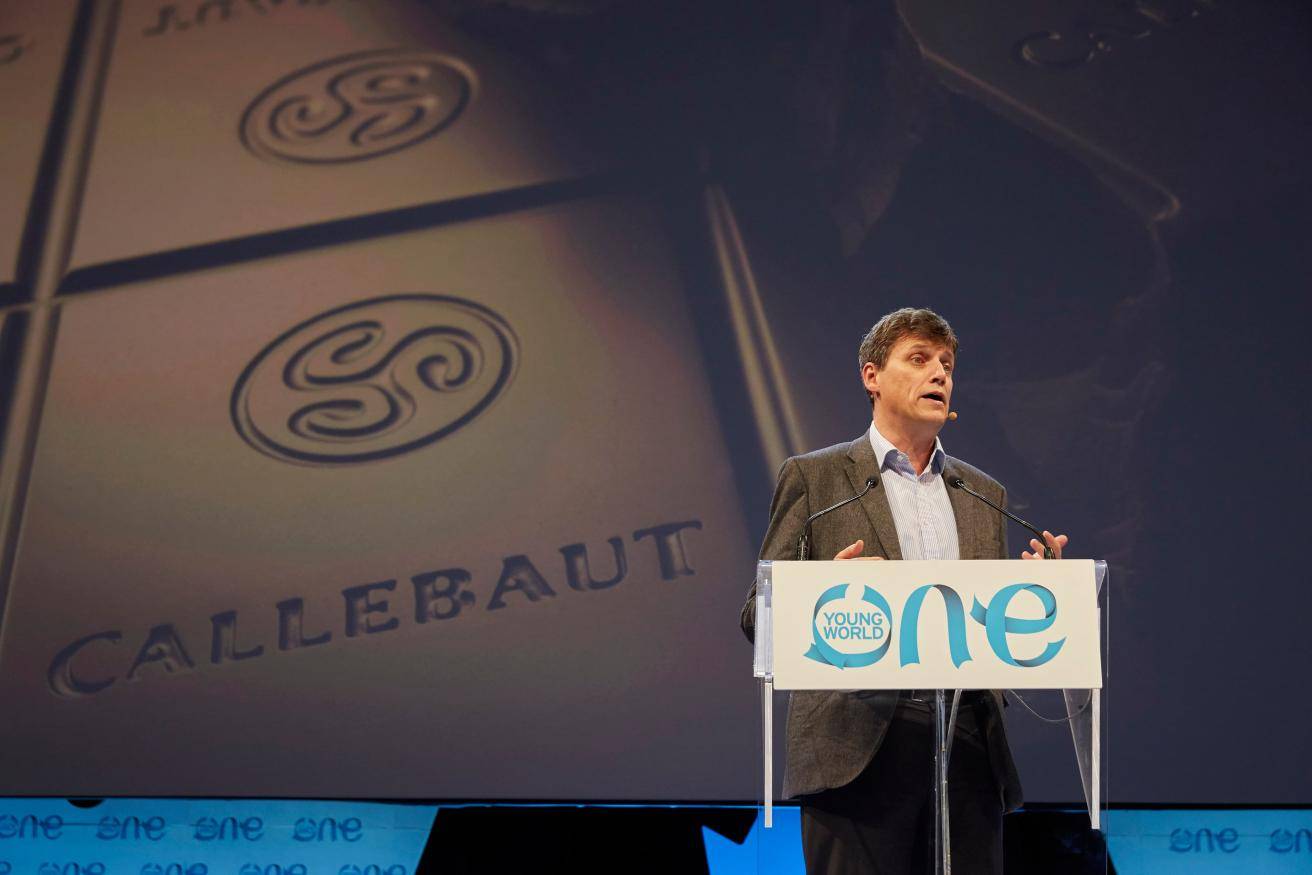
What do we do about it? As a company you train people, you equip staff to be better at what they do. You get directly involved in vocational training to compensate for missing specialists on the job market. It makes good sense for everyone involved. And it has a wider impact, because you train professionals, you equip them to take responsibility for themselves, and for their peers and their working environment. You train them to speak up in a factual and convincing way.
You train skills, but you also open a new world for behaviours. One of gender equality with women in plant manager positions. One of safe practises where you make sure you do not hurt yourself, and care for not hurting anybody else. One of sustainable practices by caring for your environment.
As a company you can have an impact both in offices and the shop floor in training staff to be the best in what they do. And you can go further and try to open them to the world and give them the space so that - as Ghandi once said - they are the change they want to see around them.
And what can you do personally? Never stop learning, interrogating, questioning. Learn from the real people, as much as from the book. Learn from the guys on the shop floor or in the store. Meet and listen. Again and again. Make sure you live in the real world, not in some abstract one. Make learning a discipline, a daily routine, same as sports.
Then find ways to leverage whatever you have learned, become a first change agent for good, and transmit your knowledge. You owe it to the ones that have taught you owe it to the next generations. Teach, share, create vocations and nourish intellectual curiosity.
